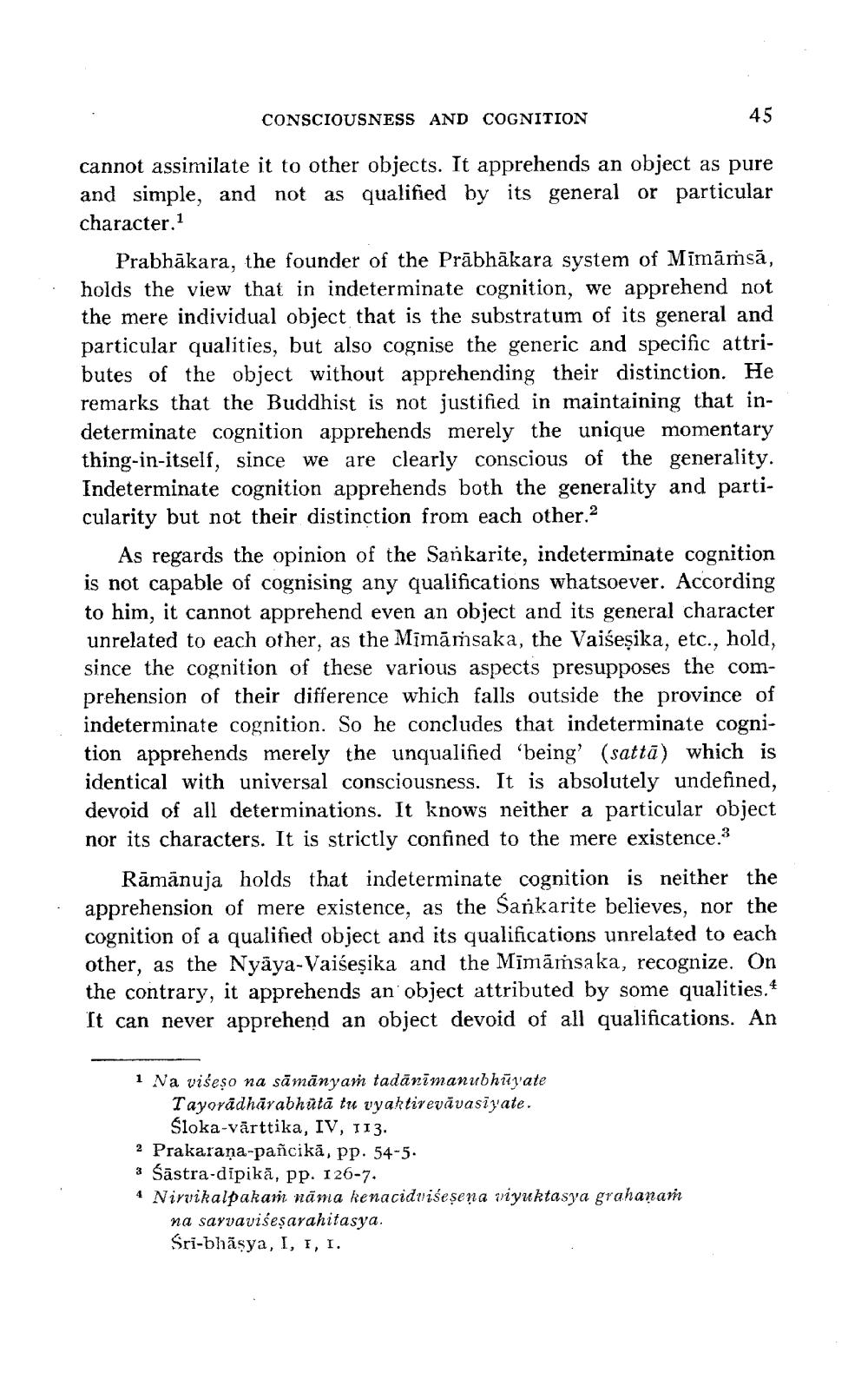________________
CONSCIOUSNESS AND COGNITION
cannot assimilate it to other objects. It apprehends an object as pure and simple, and not as qualified by its general or particular character. 1
Prabhākara, the founder of the Prābhākara system of Mīmāṁsā, . holds the view that in indeterminate cognition, we apprehend not
the mere individual object that is the substratum of its general and particular qualities, but also cognise the generic and specific attributes of the object without apprehending their distinction. He remarks that the Buddhist is not justified in maintaining that indeterminate cognition apprehends merely the unique momentary thing-in-itself, since we are clearly conscious of the generality. Indeterminate cognition apprehends both the generality and particularity but not their distinction from each other.2
As regards the opinion of the Sankarite, indeterminate cognition is not capable of cognising any qualifications whatsoever. According to him, it cannot apprehend even an object and its general character unrelated to each other, as the Mīmāṁsaka, the Vaiśeşika, etc., hold, since the cognition of these various aspects presupposes the comprehension of their difference which falls outside the province of indeterminate cognition. So he concludes that indeterminate cognition apprehends merely the unqualified being' (sattā) which is identical with universal consciousness. It is absolutely undefined, devoid of all determinations. It knows neither a particular object nor its characters. It is strictly confined to the mere existence.3
Rāmānuja holds that indeterminate cognition is neither the apprehension of mere existence, as the Sankarite believes, nor the cognition of a qualified object and its qualifications unrelated to each other, as the Nyāya-Vaišeşika and the Mimāṁsaka, recognize. On the contrary, it apprehends an object attributed by some qualities. It can never apprehend an object devoid of all qualifications. An
1 Na višeşo na sāmānyam tadārīmanubhūyate
Tayorādhavabhūtā tu vyaktirevăvasiyate.
Sloka-värttika, IV, 113. 2 Prakarana-pañcikā, pp. 54-5. 3 Šāstra-dipikā, pp. 126-7. 4 Nirvikalpakan nama kenacidvišeşeņa viyuktasya grahanam
na sayvavićeşarahitasya. Sri-bhāşya, I, I, I.




